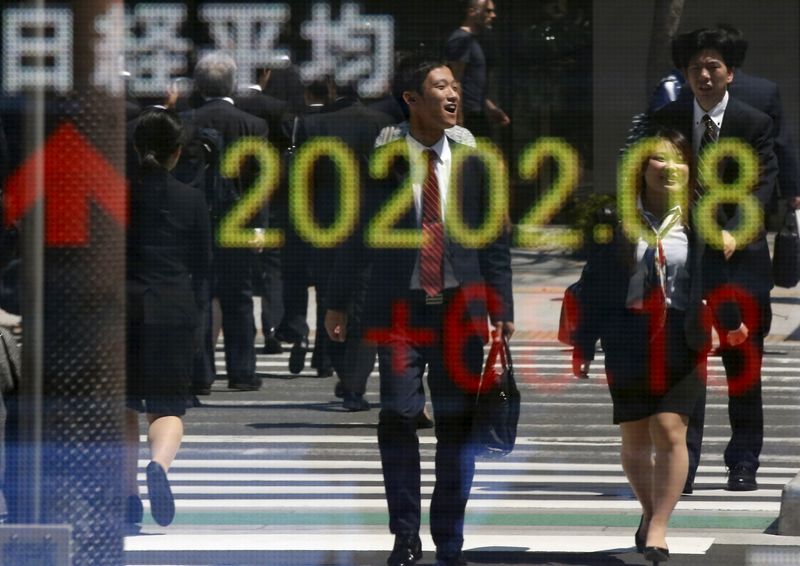By Gina Lee
Investing.com – Asia Pacific stocks were up on Thursday morning, with the U.S. Federal Reserve betting that the U.S. economy will be able to weather its campaign against high inflation. However, the flatter U.S. Treasury yield could mean that economic growth will not be as resilient as hoped for.
Japan’s Nikkei 225 jumped 2.88% by 10:39 PM ET (2:39 AM GMT) and South Korea’s KOSPI rose 1.77%.
In Australia, the ASX 200 was up 1.41%. Employment data for February 2022 showed that the employment change was 77,400, the full employment change was 121,900, and the unemployment rate was 4%.
Hong Kong’s Hang Seng Index soared 4.52%.
China’s Shanghai Composite rose 1.72% and the Shenzhen Component jumped 2.6%. The country’s more market-friendly stance, announced on Wednesday, boosted sentiment and an index of U.S.-listed Chinese stocks soaring 33% overnight.
U.S. shares recorded their best two-day gain since April 2020, after the Fed hiked its interest rate to 0.5% in its policy decision handed down on Wednesday. It also hinted at hikes at all six remaining meetings in 2022, with Fed Chairman Jerome Powell saying the U.S. economy is “very strong” and can handle monetary tightening.
Gains for U.S. Treasuries were smaller, and the yield curve remained flatter. The latter led some investors to question whether the Fed will be able to curb inflation without triggering a sharp slowdown in growth, or even a recession.
“The overall message you got from the Fed today was very clear,” Deutsche Bank AG chief international strategist Alan Ruskin told Bloomberg. “They want financial conditions to tighten. The issue there is, can you soft-land this thing? Historically, when the Fed tightens, you do get some hard landing somewhere.”
The central bank will also begin allowing its $8.9 trillion balance sheet to shrink at a “coming meeting” but did not provide further details.
“It’s possible we’re going to see a yield curve inversion,” JPMorganAsset Management global market strategist Meera Pandit told Reuters.
That doesn’t necessarily mean a U.S. recession since bond market signals are being shaped by an unusual combination of Fed asset tapering, interest rate hikes, and balance-sheet reduction over a relatively short period, she added.
The Bank of England will hand down its policy decision later in the day. European Central Bank President Christine Lagarde, Executive Board member Isabel Schnabel, Governing Council member Ignazio Visco, and Chief Economist Philip Lane will speak at a conference on the same day.
The Bank of Japan will hand down its policy decision on Friday.
Meanwhile, the commodity shock from Russia’s invasion of Ukraine on Feb. 24 continues to aggravate both price pressures and economic risks. The latest round of ceasefire talks between the two countries ended with Russian spokesman Dmitry Peskov saying that a neutral Ukraine with its own army is a possible compromise.
However, Ukraine said it needs security guarantees, and U.S. President Joe Biden said his country would send Ukraine drones and thousands of anti-aircraft as well as anti-tank missiles.
